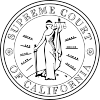Varian v. Delfino
Appearance
This article has multiple issues. Please help improve it or discuss these issues on the talk page. (Learn how and when to remove these template messages)
|
| Varian v. Delfino | |
|---|---|
 | |
| Decided 5 March 2006, | |
| Full case name | Varian Medical Systems, Inc. v. Delfino (2005) |
| Citation(s) | 35 Cal.4th 180 25 Cal.Rptr.3d 298 |
| Court membership | |
| Associate Justices | Janice R. Brown |
Varian Medical Systems, Inc. v. Delfino,
causes of action
affected by the motion...you have a right not to be dragged through the courts because you exercised your constitutional rights."
Facts
In this case involving the arcana of appellate procedure, research scientists Michelangelo Delfino, Ph.D. and Mary E. Day filed an appeal from a $775,000
high-tech corporation headquartered in Gloucester, Massachusetts. The judgment against Delfino and Day included a broad injunction ordering them not to "publish, post, or otherwise disseminate, directly or indirectly, on the Internet or elsewhere" 23 categories of statements that the trial court judge Jack Komar
, and not the jury, found "untrue" and "false and defamatory."
In the fall of 2001 prior to the
trial, Delfino and Day filed a special motion to strike Varian's complaint under California's Anti-SLAPP statute, Code of Civil Procedure section 425.16. The trial court denied the motion and Delfino and Day appealed from that denial, but the trial court and California Courts of Appeal refused to stay the trial under Code of Civil Procedure section 916 while the anti-SLAPP appeal was pending. At the conclusion of a seven-week jury trial the anti-SLAPP appeal was dismissed as moot
.
Ruling
On appeal to the California Sixth District Court of Appeal, in November 2003 a three-judge panel rejected the argument that the trial court lacked subject matter
plaintiffs
' attempts to collect on the judgment and no compensation were ever collected from Delfino and Day.
On 3 March 2005, the Supreme Court held by a 7–0 vote that under Code of Civil Procedure section 916, "all of the matters on trial were embraced in and affected by
in pro per
, the case settled amicably and more than seven years of remarkably acrimonious litigation ended.
Pillsbury Winthrop Shaw Pittman LLP
failed to receive any amicus support.
External links
- Delfino and Day's U.S. Supreme Court Amicus Brief in support of Tory
- Delfino v. Agilent California Sixth District Court of Appeal opinion
- Horvitz & Levy LLP website discussion of Varian v. Delfino
- MoBeta Inc. Business Wire press release(s)
- Varian v. Delfino California Sixth District Court of Appeal opinion
- Varian v. Delfino California Supreme Court opinion
- Varian v. Delfino California Supreme Court study guide
- Varian v. Delfino California Supreme Court summary
- Yahoo! Finance Varian message board - The site of continuous derogatory exchanges between Delfino and possibly other supporters and Varian employees.
Further reading
- Anderson, Craig. Court Kills Web Defamation Verdict, Daily Journal, March 4, 2005
- Bay, Tina Company Held Immune from Tort Action Over Threats Employee Allegedly Made Through Work Computer, Metropolitan News-Enterprise, December 15, 2006
- Becker, Amanda 20 to Watch Under 40, Daily Journal, January 31, 2007
- Cummins, Erik Attorney Who Advocates for Public Access Wins Praise, March 16, 2005
- Delfino, Michelangelo and Mary E. Day. Be Careful Who You SLAPP, MoBeta Pub., 2002
- Eisenberg, Jon B. and Jeremy B. Rosen. Unmasking "crack_smoking_jesus": Do Internet Service Providers have a Tarasoff Duty to Divulge the Identity of a Subscriber Who is Making Death Threats?, 25 Hastings Comm. & Ent. LJ 683, 2003
- Hamm, Andrew F. Authors' Battle with Varian Puts Bookstores in the Middle, Business Journal, January 17, 2003
- Hasan, Najeeb. InterNot Free Speech, Metro, 3-27/4-02-2003
- Kravets, David. Calif. Justices´ Ruling Bodes Well for Online Speech, USA Today, March 4, 2005
- Lafferty, Shannon. Contempt Claim Brought in Internet Libel War, The Recorder, January 9, 2003
- Yeung, Bernice. Libel, or Liable to Make You Laugh?, San Francisco Weekly, December 5, 2001
- SLAPP Happy, Metroactive News & Issues, October 16-22, 2003
